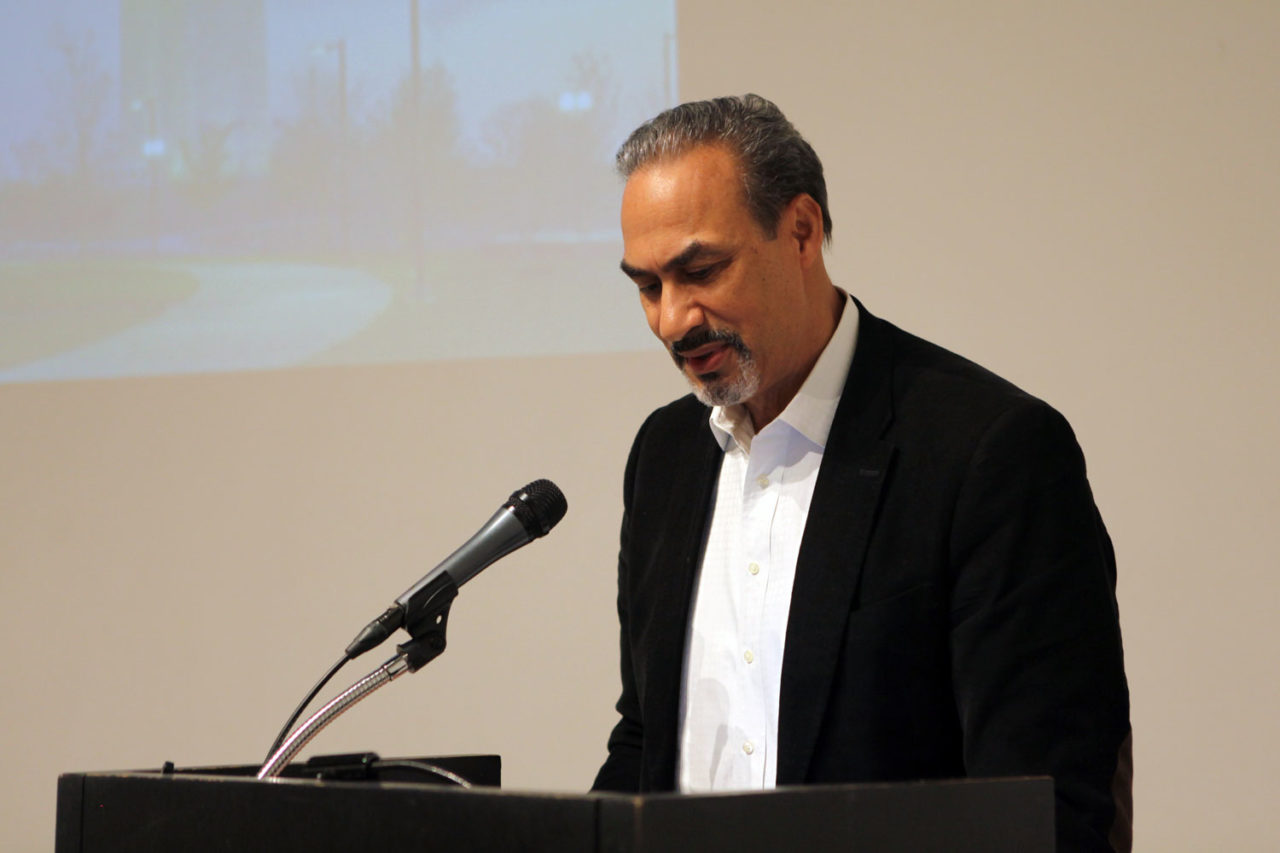by: AIA New York
Phil Freelon, FAIA, LEED AP, widely known as one of the leading architects behind the National Museum of African American History and Culture in Washington, DC, has died at the age of 66. Three years ago, he had been diagnosed with the neurodegenerative disease amyotrophic lateral sclerosis, or ALS. Despite his diagnosis, Freelon spoke with great energy at the Center for Architecture in 2017 as part of the AIANY Diversity and Inclusion Committee’s panel Revisiting Whitney Young: Diversity Today.
As reported by CNN, Freelon’s family shared that a memorial service will be planned for the architect in the fall. “In lieu of flowers, Phil has asked that those who want to honor his legacy become sustaining donors of Northstar Church of the Arts, so that the same creative and spiritual energies that nurtured him throughout his life, may positively impact others, especially in his adopted home of Durham, North Carolina,” the post says.
“We lost a great American architect,” says Benjamin Prosky, Assoc. AIA, Executive Director, AIA New York and the Center for Architecture. “Tragically too young to pass, and while still in his prime, during his influential career Phil Freelon was a design visionary, as well as a great teacher, mentor and inspiration to many,” adds Prosky.
Freelon was the founder and President of The Freelon Group, Inc., which joined forces with Perkins+Will in 2014. Freelon guided the firm’s museum and cultural center work while managing its North Carolina practice. He led multi-faceted design teams on museum projects in Washington, DC; Baltimore, MD; San Francisco, CA; Philadelphia, PA; Atlanta and Augusta, GA; and Greensboro and Charlotte, NC.
Freelon’s work has been published in national professional journals including Architecture, Progressive Architecture, Architectural Record, and Contract magazine, where he was named Designer of the Year in 2008. Metropolis, Metropolitan Home, and the New York Times have also featured Freelon and the firm.
A native of Philadelphia, PA, Freelon earned his Bachelor of Environmental Design degree in Architecture from North Carolina State University and his Master of Architecture degree from MIT. He also received a Loeb Fellowship and spent a year of independent study at the Harvard University Graduate School of Design. Freelon served as an adjunct faculty member at North Carolina State University’s College of Design and was a visiting critic/lecturer at Harvard, MIT, the University of Maryland, Syracuse University, Auburn University, the University of Utah, the California College of the Arts, Kent State University, and the New Jersey Institute of Technology, among others.
Most recently, Freelon was on the faculty at MIT’s School of Architecture and Planning. He was a Peer Professional for the GSA’s Design Excellence Program and had served on numerous design award juries, including the AIA Institute Honor Awards jury and the National Endowment for the Arts Design Stewardship Panel. Freelon was a Fellow of the American Institute of Architects, a LEED Accredited Professional, and the 2009 recipient of the AIA Thomas Jefferson Award for Public Architecture.
Freelon’s legacy will certainly live on through his work and through the architects he mentored throughout his profession. Among them, we will welcome design leader, strategist, educator, and mentor Zena Howard, FAIA, Principal, Perkins+Will, to the Center for Architecture later this year as the honored speaker at the 2019 J. Max Bond Jr. Lecture on October 16, 2019 (register here). A graduate of University of Virginia, Howard was mentored by Phil Freelon in conjunction with her role in the National Museum of African American History and Culture.








